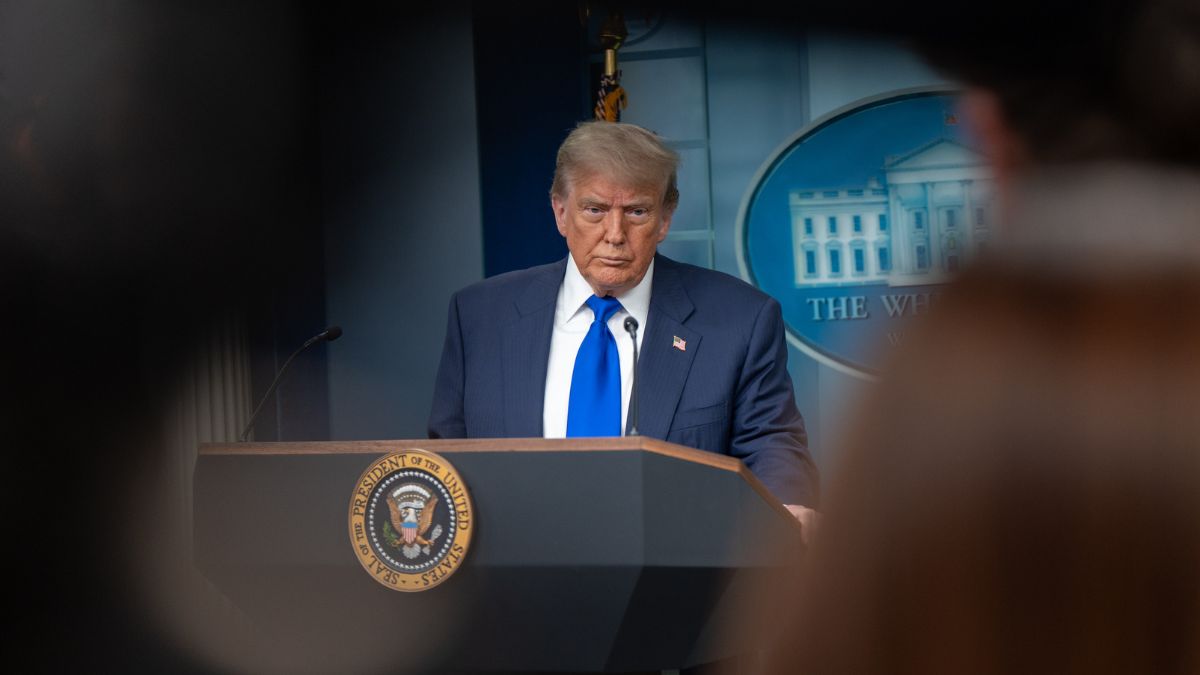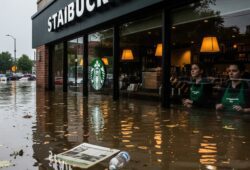
President Donald Trump has triggered a historic and controversial federal intervention in Washington, D.C., citing an “out-of-control” crime wave as the justification for invoking section 740 of the District of Columbia Home Rule Act. The move puts the DC Metropolitan Police Department under federal control, deploys hundreds of National Guard troops, and raises pressing questions about whether the capital is edging toward martial law.
ALSO READ. Stranger Things cookies are here! We’ll tell you where to get them
Why is Trump invoking section 740 of the Home Rule Act?
In a dramatic White House press conference, Trump declared: “I’m officially invoking section 740 of the District of Columbia Home Rule Act, you know what that is, and placing the DC Metropolitan Police Department under direct federal control.”
Section 740 allows the president to commandeer the city’s police for 48 hours in emergency conditions that threaten federal operations. This period can be extended with congressional notification, and any request beyond 30 days must be codified into law. Trump signaled he will extend the federal takeover, saying: “I’ll be making the appropriate notifications to Congress and to the mayor.”
What does federalizing DC mean for the Metropolitan Police?
Federalizing D.C.’s police transfers operational control from the mayor to the president—in this case, via the Attorney General. The Metropolitan Police Department will now be tasked with federal law enforcement priorities, including protecting government buildings, national monuments, and ensuring uninterrupted federal functions.
Trump emphasized this expanded authority: “We will have full, seamless, integrated cooperation at all levels of law enforcement, and will deploy officers across the district with an overwhelming presence.”
What triggered this unprecedented action?
Trump’s executive order, signed August 11, 2025, frames the situation as a crime emergency. The text cites alarming statistics:
- Murder rate in Washington DC: 27.54 per 100,000 in 2024 — higher than all 50 states.
- Robbery rate: Among the highest of large U.S. cities.
- Vehicle theft: 842.4 thefts per 100,000 residents — more than triple the national average.
The order argues that these conditions threaten federal government operations and erode national confidence. Trump described the capital as plagued by “slums” and “roving mobs of wild youth,” painting a dystopian picture that contrasts with earlier FBI data showing violent crime at a decades-long low.
How many National Guard troops will be deployed in DC?
Trump announced the mobilization of 800 National Guard troops, with the possibility of bringing in “other specialized units” if necessary. Defense Secretary Pete Hegseth confirmed:
“We’ve mobilized the DC National Guard… You will see them flowing into the streets of Washington in the coming week.”
The Guard will work alongside local police to “reestablish law, order and public safety,” a phrase Trump repeated multiple times in his remarks.
Is DC under martial law?
While Trump has federalized the Metropolitan Police and deployed the National Guard, this is not technically martial law—a legal condition where the military assumes full control of governance. However, the unprecedented scope of this action and Trump’s pledge to give officers authority to do “whatever the hell they want” has fueled speculation and concern.
Legal experts note that section 740 grants significant but time-limited powers. Extending control beyond the statutory window will require congressional involvement.
What role will the Metro Police play under federal control?
Under the new directive, the Metro Police will prioritize:
- Guarding federal buildings and national monuments.
- Ensuring secure operation of federal agencies and courts.
- Protecting transportation systems critical to federal operations.
Attorney General Pam Bondi vowed: “Crime in DC is ending and ending today. We are going to use every power we have to fight criminals here.”
Why is Trump focusing on homelessness and “slums”?
Beyond crime statistics, Trump’s rhetoric has targeted homelessness in D.C., calling for an immediate removal of encampments. On August 10, he posted that the homeless “have to move out, IMMEDIATELY,” though no formal plan was provided. “We have slums here. We’re getting rid of them. I know it’s not politically correct,” he said.
This approach has raised concerns among advocates and city officials, who fear aggressive sweeps could violate civil rights.
What does this mean for other U.S. cities?
Trump warned that Chicago and New York could face similar actions if their crime rates remain “out of control.” “Other cities are hopefully watching this. Maybe they’ll self clean up,” he said.
He described Chicago’s leadership as “totally incompetent” and hinted that federal intervention could spread if urban crime trends continue.
How have federal law enforcement leaders responded?
Several top officials joined Trump at the podium to signal unity:
- Secretary of the Interior Doug Burgum: “The rank and file is so happy to be enforcing the law again.”
- FBI Director Kash Patel: “We’re going to clean up Washington, DC… the lawful way.”
- U.S. Attorney for DC Jeanine Pirro: “Too much violent crime being committed by young punks who think that they can get together in gangs and crews and beat the hell out of you.”
Is this move popular among DC residents?
Public opinion is sharply divided. Supporters see the move as a necessary crackdown on crime, while critics frame it as a political power grab that undermines local governance. The city’s mayor has expressed serious concerns about using the National Guard in daily policing, warning it could escalate tensions.
Could Trump’s plan face legal challenges?
Yes. While section 740 grants the president broad emergency powers, civil liberties groups are preparing to contest any extended occupation of local policing functions. If Trump pushes past the statutory limits without new legislation, court battles are expected.










